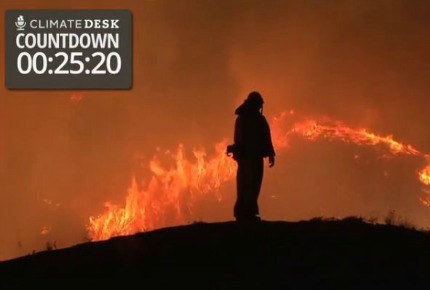PITTSBURGH, PA – After experimenting with burning various forms of timber and other combustibles that typically burn in wildfires, researchers have isolated key attributed of brown carbon.

The major sources of brown carbon are wildfires. Brown carbon happens when wood does not fully burn, the researchers said. Brown carbon warms the atmosphere similarly to black carbon, but the prevalence and warming efficiency of brown carbon in wildfire smoke has been a large question mark. Smoke from wildfires accounts for one-third of the Earth's "black" carbon — the familiar black soot that is second only to carbon dioxide in warming the planet, the team of researchers studying global warming reported.
Team members include researchers from Carnegie Mellon University with scientists from the Los Alamos National Laboratory and the University of Montana.
To study brown carbon, the researchers simulated various wildfire conditions, setting fire to a range of tree, grass, and brush types representative of vegetation in areas known for wildfires. The researchers measured the smoke’s ability to absorb light and induce warming. They found brown carbon produced in the fires had “little dependence on what was being burned.”
“Instead, brown carbon emissions correlated with the amount of black carbon in the smoke, which is dictated by the burning conditions, such as flaming and smoldering phases, and is relatively easy to measure,” the report said.
The findings of the research will be published in “Nature Geoscience.”






Have something to say? Share your thoughts with us in the comments below.